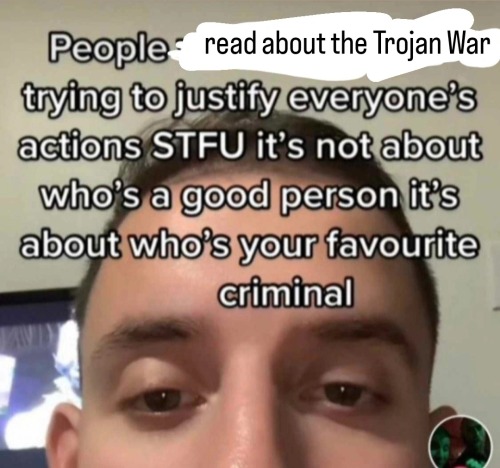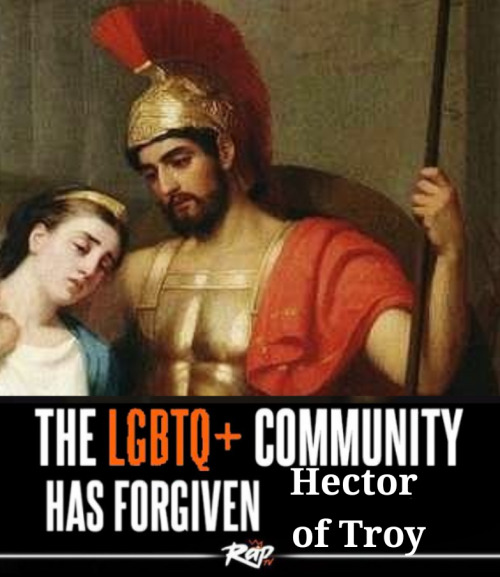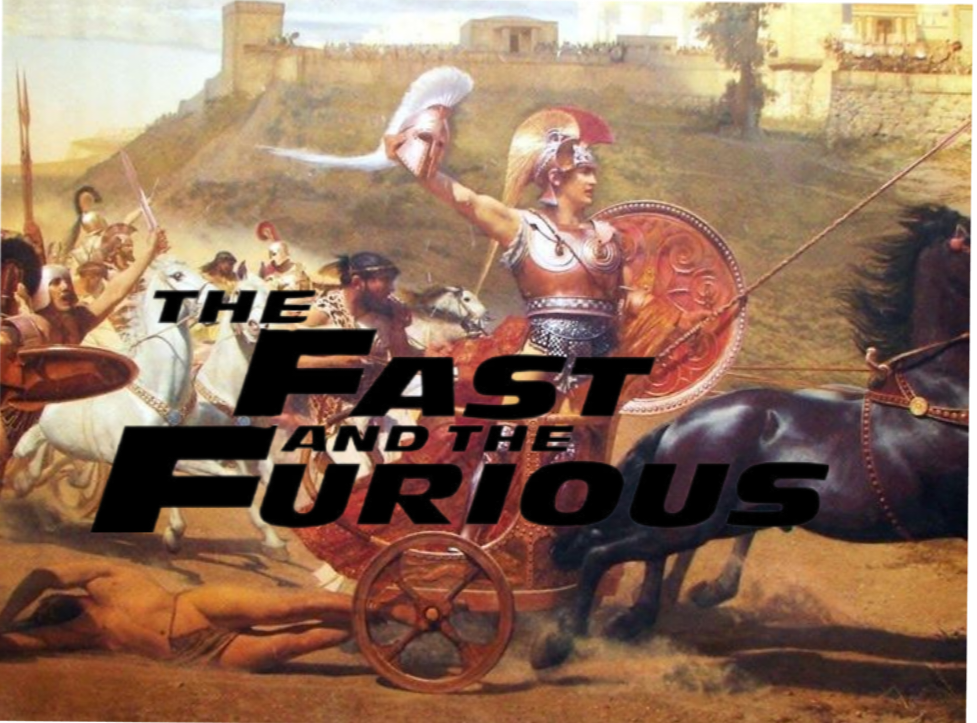TRIGGER WARNINGS: war, violence, sexual slavery.
The Iliad, a major Greek epic poem by Homer, is like sex, if sex were actually good (I say that a lot, but it's true). Divided into 24 'books' or chapters, The Iliad is often regarded as one of the earliest and most significant pieces of Western literature. It is one of the few ancient works that is still widely read and enjoyed by modern audiences today. The Iliad is also known as, in my opinion, the best BL in history. This bad boy's got everything: tragic and doomed yaoi, big and beefy Greek dudes, petty gods, epic rap-battles and battle-battles, and enough toxic masculinity to make my vegan cousin pass out.
The events of the Iliad take place roughly 9 years since the start of the Trojan War, spurred by Paris of Troy's kidnapping of King Menelaus of Sparta's wife, Helen, after being promised her hand in marriage by Aphrodite. Bound by an oath, Menelaus' bros arm themselves and sail to Asia Minor to retrieve his wife from Paris' pretty boy twink hands. At the time of The Iliad, the Greeks have successfully ransacked the cities and towns surrounding Troy; mostly thanks to this blond dude named Achilles. He's kind of a dick (actually, a major dick) but he also happens to be the main protagonist of the epic and an indespensible asset to the Greeks. Since beaching upon Troy's shores 9 years ago, the great walls of Ilion have been impregnable... for now.
This Achilles guy in question gets majorly pissed off by Agamemnon; the brother of Menelaus, king of Mycenae, and the commander of the Greek armies. Agamemnon insults him by taking away his war prize (aka bang maid or sex slave) Briseis as compensation for having to give up his own slave, Chriseis, to appease Apollo. In response, Achilles goes on strike and holes up in his tent, wrapped up like an angry blond burrito. He cries to his mother, a Nereid known as Thetis, about how gosh darn unfair the situation is and how he wishes to spite Agamemnon by dooming everyone (thanks Achilles). Thetis goes to Zeus and successfully compells him to support the Trojans--thus causing the Greeks to lose and forcing them recognise how badly they've wronged Achilles.
The several chapters that follow describe how the scales begin to tip towards the Trojans due to Achilles' absence and the command of Hector, one of many princes of Troy. Diomedes, Ajax, Agamemnon, and Odysseus in particular tear through the Trojans with some help from Athena and Hera--though eventually, they get benched too. Without them, the Greeks begin to lose against the Trojans badly, so Achilles' best childhood buddy and definitely-not-boyfriend; Patroclus, disguises himself as Achilles. Patroclus leads the Greeks into battle in his boyfriend's clothes, but is killed by Prince Hector of Troy after Apollo knocks off his helmet and reveals his identity to the Trojans. What ensues soon after is Achilles' infamous rage. Achilles slaughters the Trojans, fights the river, kills Hector, and drags his body by chariot around Troy. King Priam, Hector's father, is forced to plead to Achilles for the return of his son's body. Achilles relents, and the epic concludes with the Trojans mourning Hector's death.
A LOT happens in between, before, and after these events--but this is the general gist of it. The many tales of the Trojan War are covered by several different poems and books; the Iliad is merely one chapter of it.






